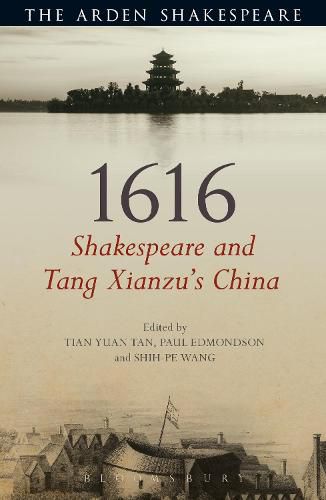Readings Newsletter
Become a Readings Member to make your shopping experience even easier.
Sign in or sign up for free!
You’re not far away from qualifying for FREE standard shipping within Australia
You’ve qualified for FREE standard shipping within Australia
The cart is loading…






The year is 1616. William Shakespeare has just died and the world of the London theatres is mourning his loss. 1616 also saw the death of the famous Chinese playwright Tang Xianzu. Four hundred years on and Shakespeare is now an important meeting place for Anglo-Chinese cultural dialogue in the field of drama studies. In June 2014 (the 450th anniversary of Shakespeare’s birth), SOAS, The Shakespeare Birthplace Trust and the National Chung Cheng University of Taiwan gathered 20 scholars together to reflect on the theatrical practice of four hundred years ago and to ask: what does such an exploration mean culturally for us today? This ground-breaking study offers fresh insights into the respective theatrical worlds of Shakespeare and Tang Xianzu and asks how the brave new theatres of 1616 may have a vital role to play in the intercultural dialogue of our own time.
$9.00 standard shipping within Australia
FREE standard shipping within Australia for orders over $100.00
Express & International shipping calculated at checkout
The year is 1616. William Shakespeare has just died and the world of the London theatres is mourning his loss. 1616 also saw the death of the famous Chinese playwright Tang Xianzu. Four hundred years on and Shakespeare is now an important meeting place for Anglo-Chinese cultural dialogue in the field of drama studies. In June 2014 (the 450th anniversary of Shakespeare’s birth), SOAS, The Shakespeare Birthplace Trust and the National Chung Cheng University of Taiwan gathered 20 scholars together to reflect on the theatrical practice of four hundred years ago and to ask: what does such an exploration mean culturally for us today? This ground-breaking study offers fresh insights into the respective theatrical worlds of Shakespeare and Tang Xianzu and asks how the brave new theatres of 1616 may have a vital role to play in the intercultural dialogue of our own time.